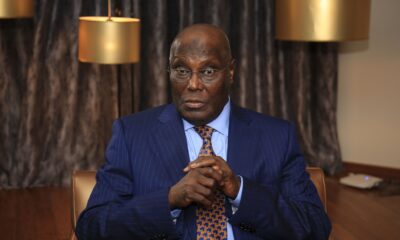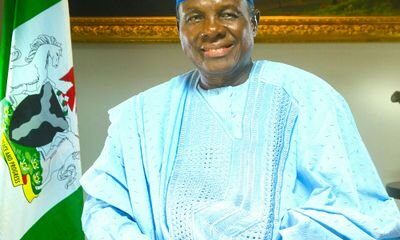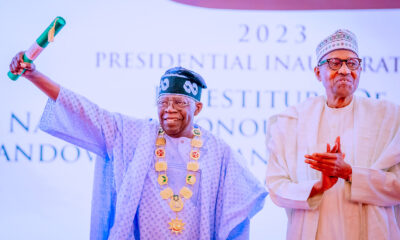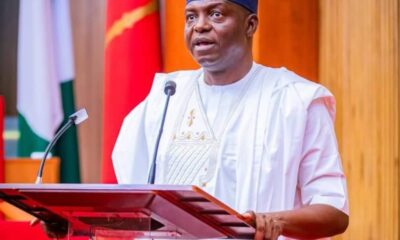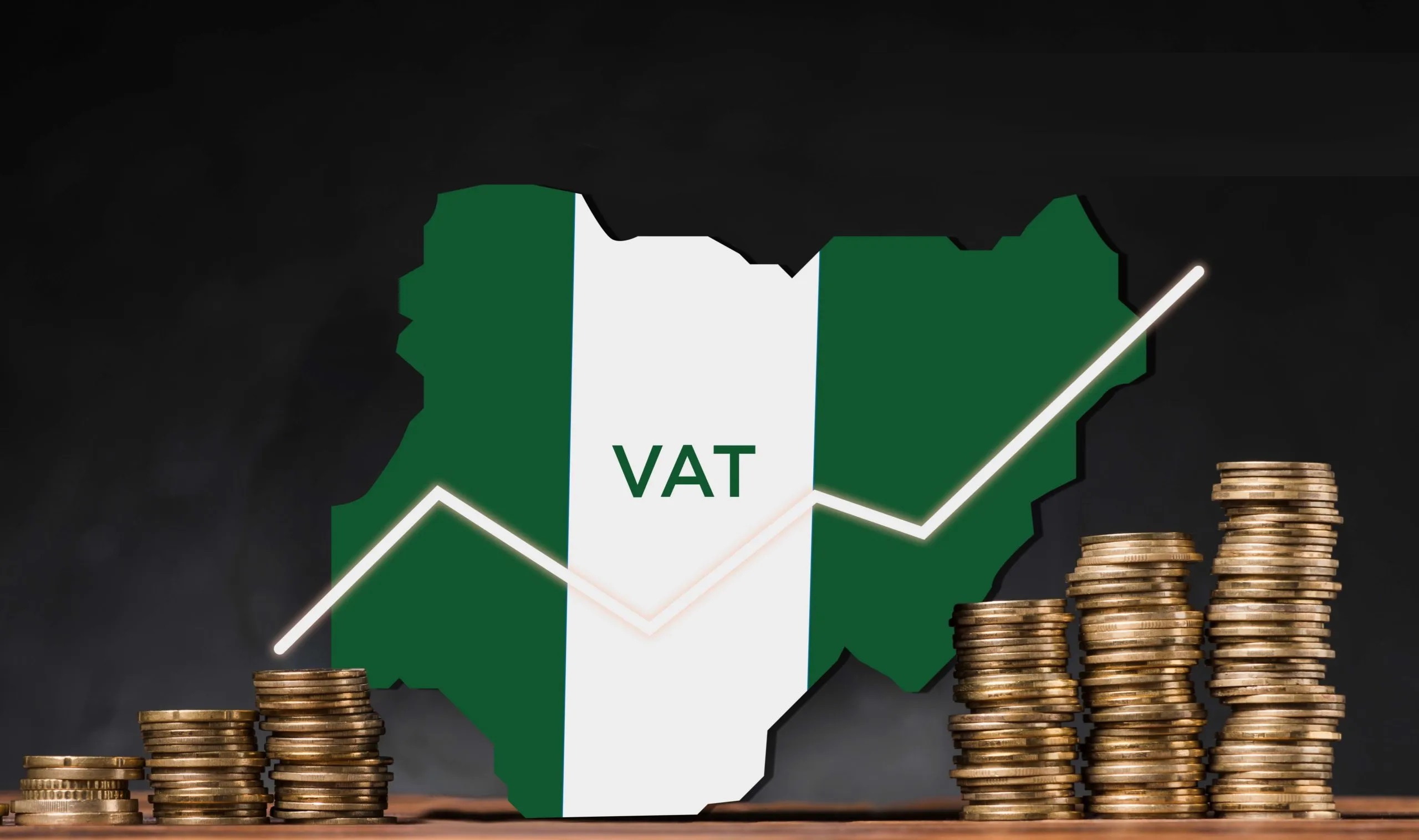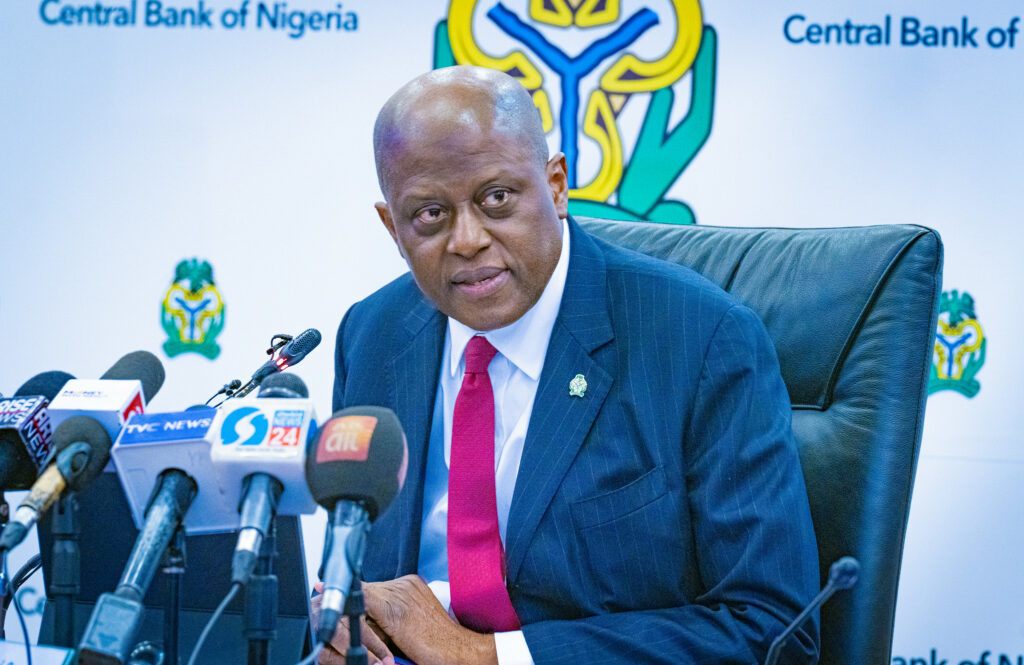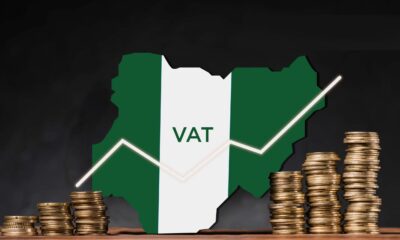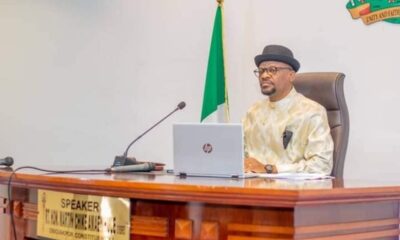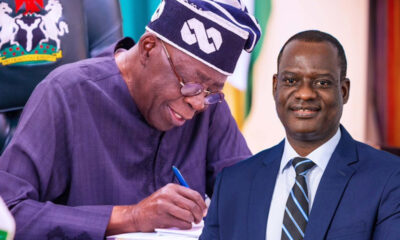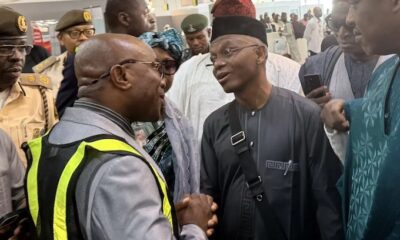Total Value Added Tax earnings rose to N1.08tn in January as a new sharing formula commenced, altering how the proceeds are split among the Federal Government, states, and Local Governments, findings by The PUNCH have shown.
Documents presented at the February meeting of the Federation Account Allocation Committee and obtained by The PUNCH on Tuesday showed that total VAT collections by the Nigeria Revenue Service stood at N1.08tn in January 2026, compared with N913.96bn in December 2025.
The increase of N169.20bn represents an 18.5 per cent rise month-on-month. However, the full N1.08tn was not available for sharing. VAT deductions at source amounted to N79.94bn in January, up from N67.45bn in December, leaving a net VAT of N1.00tn for distribution.
In December, the net VAT shared stood at N846.51bn. The month-on-month increase in the net distributable VAT was N156.72bn, also representing an 18.5 per cent increase.
January marked the first full month under the revised VAT sharing formula. Under the new structure, 10 per cent of net VAT goes to the Federal Government, 55 per cent to state governments, and 35 per cent to Local Governments.
Previously, the Federal Government received 15 per cent, states 50 per cent, and Local Governments 35 per cent. If the previous 15 per cent formula had been retained, the Federal Government would have received about N150.48bn from the N1.00tn net VAT shared in January, instead of the N100.32bn it got under the new 10 per cent structure, implying a shortfall of roughly N50.16bn.
Conversely, states, which now receive 55 per cent, shared about N551.77bn, meaning their allocation increased by approximately N50.16bn compared to the N501.61bn they would have received under the former 50 per cent formula.
Based on the new sharing formula, from the N1.00tn net VAT shared in January, the Federal Government received N100.32bn, states received N551.77bn, while Local Governments were allocated N351.13bn.
In December, under the old 15 per cent formula, the Federal Government’s VAT share stood at N126.98bn. The January allocation of N100.32bn, therefore, represents a decline of N26.65bn, or about 21 per cent, compared with what the Federal Government received in December.
For states, the impact of the new formula was positive. Their collective share rose to N551.77bn in January from N423.25bn in December, an increase of N128.52bn, equivalent to 30.4 per cent.
Local Governments received N351.13bn in January, up from N296.28bn in December, an increase of N54.85bn or 18.5 per cent.
The cost of collection rose alongside the higher VAT pool. The NRS VAT cost of collection, calculated at 4 per cent, increased to N43.33bn in January from N32.72bn in December, a rise of N10.61bn or 32.4 per cent.
The Nigeria Customs Service import VAT cost of collection, which stood at N3.84bn in December, was nil in January, which may be due to the tax reforms, which made NRS the main agency in charge of collecting government revenue.
Other statutory deductions included 3 per cent to the North East Development Commission Project Account, which rose to N31.20bn from N26.32bn, an increase of N4.87bn. The 0.5 per cent deduction to the Revenue Mobilisation Allocation and Fiscal Commission increased to N5.42bn from N4.57bn, up by N846.02m.
Combined, the NEDC and RMAFC deductions totalled N36.61bn in January compared with N30.89bn in December, reflecting a month-on-month increase of N5.72bn. The broader FAAC summary showed that total funds available for distribution in January across revenue lines stood at N3.04tn.
Total deductions amounted to N1.14tn, leaving a total net distributable revenue of N1.90tn. Of this amount, N896.78bn came from statutory revenue, while N1.00tn was net VAT. When VAT and statutory revenue were combined, the Federal Government’s total allocation stood at N525.23bn.
State governments received N767.29bn, local governments got N517.28bn, while the 13 per cent derivation share amounted to N90.19bn.
A breakdown of VAT distribution among states showed that Lagos remained the dominant beneficiary. The state’s gross VAT allocation for January stood at N111.22bn. After a deduction of N9.89bn, Lagos retained N101.34bn as state net VAT. Its local governments collectively received N70.57bn.
Oyo ranked second with N24.04bn in gross VAT allocation, while Rivers followed with N23.57bn. Kano received N17.37bn, and the FCT-Abuja was allocated N15.76bn. Bayelsa received N15.07bn. Other top beneficiaries included Katsina with N13.82bn, Jigawa with N12.92bn, Delta with N12.89bn, and Kaduna with N12.73bn.
At the lower end of the allocation scale, Ebonyi received N9.45bn, Ekiti N9.83bn, Taraba N9.37bn, and Nasarawa N9.77bn.
Although the equality component accounts for 50 per cent of the states’ distribution formula, the 30 per cent population and 20 per cent derivation factors continue to create wide disparities between high-activity and lower-activity states.
The non-import local VAT collection table shows the concentration of VAT generation. Total non-import VAT collections for January stood at N913.47bn, compared with N721.83bn in December, representing an increase of N191.65bn or 26.5 per cent.
Lagos alone generated N533.40bn in non-import VAT in January, accounting for 58.39 per cent of the total. Oyo generated N67.18bn, Rivers N66.35bn, FCT-Abuja N39.73bn, and Bayelsa N34.62bn.
For local governments, Lagos councils received N70.57bn in net VAT, Oyo councils got N18.04bn, Kano councils received N16.29bn, Rivers councils got N15.47bn, and Katsina councils received N11.76bn.
A VAT income comparison sheet showed that against a benchmark of N625.13bn, the January VAT collection of N913.96bn exceeded the benchmark by N288.82bn.
The N1.08tn total VAT earnings figure exceeded the same benchmark by N458.03bn, producing a cumulative difference of N746.85bn over the period reflected.
The PUNCH earlier reported that the 36 states of the federation would likely receive an estimated N5.07tn as their share of Value Added Tax in 2026, following the commencement of a new VAT sharing formula introduced under the National Tax Acts.
This development was contained in the 2026–2028 Medium-Term Expenditure Framework and Fiscal Strategy Paper approved by the Federal Executive Council.
However, with VAT earnings exceeding projections in January and February, states may earn higher than N5.07tn if the current actual earning pattern persists throughout the year.
The PUNCH earlier reported that the Nigeria Economic Summit Group warned that the Federal Government could face revenue shortfalls if it does not increase the value-added tax rate as part of the ongoing tax reform process.
The Chief Executive Officer of NESG, Dr Tayo Aduloju, made this statement during an interactive media session in Abuja. He emphasised that while reforms to the VAT system are essential, maintaining the current VAT rate without an increase could result in a significant loss of revenue for the government.
Speaking on the issue, Aduloju said, “Without those rate hikes, it means that the government might lose some revenue.” Aduloju explained that the current tax reform process must strike a balance between simplifying the tax system and increasing the VAT rate to maintain revenue stability.
According to him, simply reducing the number of taxes without adjusting the VAT rate could weaken the government’s revenue base.
Also, in its most recent Article IV Consultation Report on Nigeria, the International Monetary Fund noted that although the recent tax reforms approved by the National Assembly and President Bola Tinubu represent a major step forward in modernising the VAT and Company Income Tax regimes, the choice to maintain the current VAT rate would lead to an immediate revenue shortfall.
It stated that the Federal Government may lose as much as 0.5 per cent of the country’s Gross Domestic Product in revenue following its decision not to raise the VAT rate.
“The decision not to raise the VAT rate now is reasonable, given high poverty and food insecurity, and with the cash transfer system to support the most vulnerable households not yet fully rolled out. However, this will reduce consolidated government revenue by up to ½ per cent of GDP in the authorities’ estimates,” the report noted.
According to the Fund, unless alternative financing options are found, subnational governments may be forced to either scale back spending or ramp up their own revenue efforts. The IMF, however, acknowledged the government’s justification for delaying a VAT hike, particularly at a time of worsening poverty and food insecurity.
Speaking recently at the launch of the BudgIT State of States 2025 Report in Abuja, where he delivered the keynote address, the Chairman of the Presidential Fiscal Policy and Tax Reforms Committee, Mr Taiwo Oyedele, projected that states could earn more than N4tn annually from 2026 when new Value Added Tax reforms take effect.
He said, “With VAT reforms kicking in from 2026, states’ share will rise to 55 per cent. That could amount to over N4tn in 2026. The question is: will this money be spent, or will it be invested?”
States IGR boost
Economic analysts called on state governments to intensify efforts to unlock internal revenue as their allocations under the revised sharing formula increase. In separate interviews with The PUNCH, they noted that Value Added Tax has never been a major revenue pillar for the Federal Government.
A former Chairman of the Chartered Institute of Bankers of Nigeria, Prof Segun Ajibola, said the Federal Government had always focused on other revenue sources. “The federal government has never emphasised VAT as a major revenue source. When the law was amended, the government made it clear that it would benefit the state and the local government more,” Ajibola explained.
The economist added that the Federal Government was strengthening alternative revenue streams, stating, “There are so many revenue sources the federal government is looking at to beef up its own revenue, like capital gains tax and other federally collected revenue, excess duties, and so on. In fact, an increase in VAT is to benefit states and local governments. The pertinent question is what happens to it upon getting there.”
Ajibola expressed concern about living conditions across states. “The states are bleeding. And when I say the states are bleeding, I mean the masses. Schools are dilapidated, roads are bad, people are hungry, health care facilities are nowhere,” he lamented.
He called for transparency in the use of the increased allocations, adding, “If a state government wants to be accountable, each state government should set up a desk to account for the increase in the VAT allocation and make the report known to the public. There is so much to spend on agriculture and other public utilities.”
Also, the Chief Executive Officer of Economic Associates, Dr Ayo Teriba, said VAT historically replaced state sales tax and originally belonged to states. “The tax belonged to the states. It is for ease of collection that the federal government decides to collect on behalf of the states,” Teriba noted.
He, however, argued that the Federal Government could justifiably retain a stronger share. “There’s no reason why the federal government should collect cross-border VAT payments and surrender them to states. The Federal Government should retain it since it also has responsibilities,” Teriba said.
The analyst cautioned states against overdependence on statutory allocations, advising, “Not to make a mountain out of a molehill (as) these are smaller amounts for the states.”
He pointed to Enugu State as a model, noting, “States that can do better than just wait for VAT or FAAC, like Enugu State, will be better models. If they repeat what they have done, their internally generated revenue will be bigger than FAAC and VAT combined. Other states should emulate that. They are unlocking revenue not by taxing people,” Teriba remarked.



